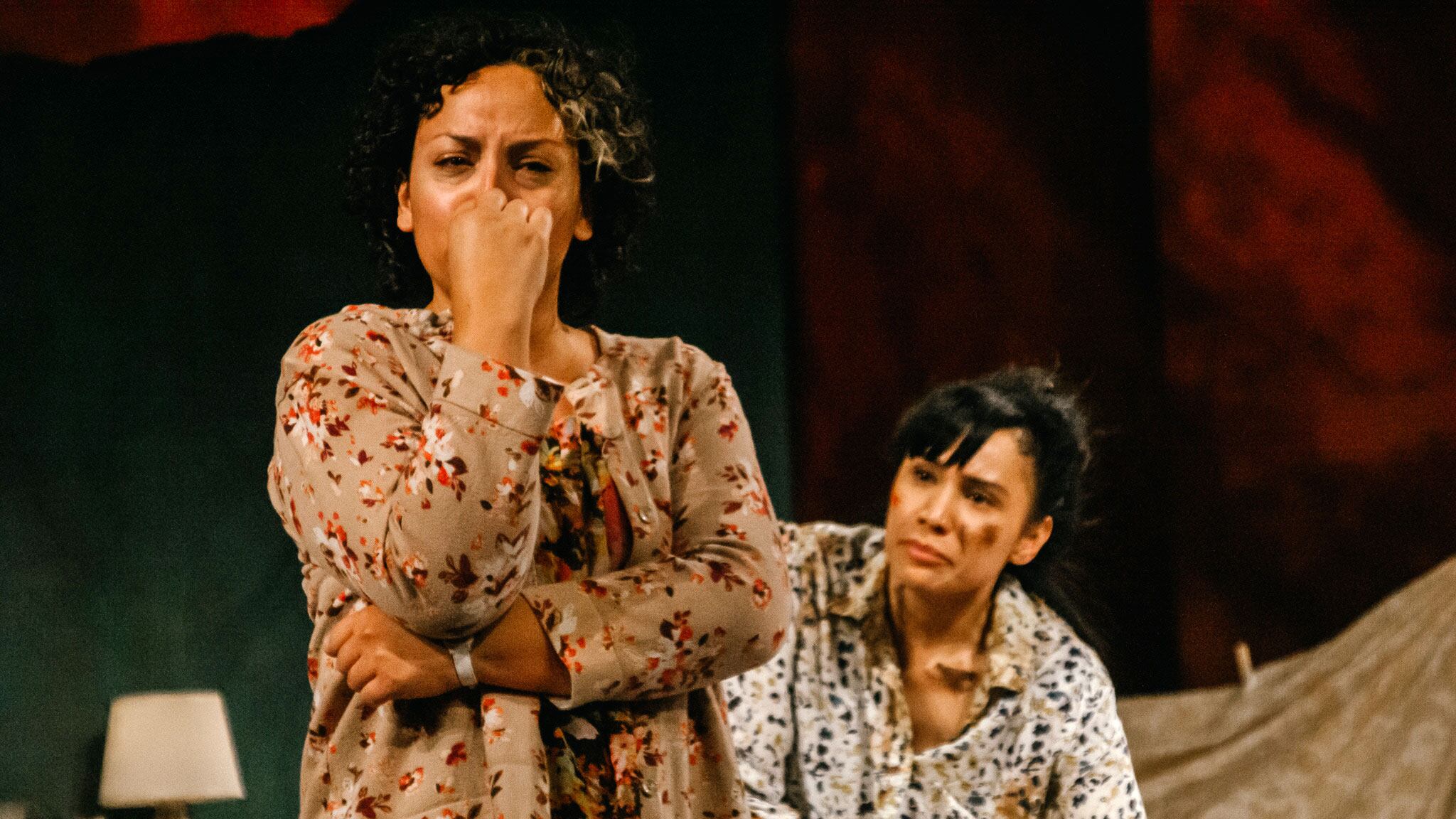There is a moment in Artist Repertory Theatre's production of Isaac Gomez's La Ruta when a sea of pink crosses shines in the dark. They illuminate the space around them like lamps, then are swallowed in shadows, making it seem as if they were never there.
The crosses represent the many women who have vanished or have been murdered in Ciudad Juárez, the Mexican industrial city less than 8 miles south of El Paso, Texas. Though the exact number is unknown, estimates are that hundreds to more than a thousand have been lost. Acts of mass violence against women in Juárez have risen dramatically since the 1990s (giving the city its damning nickname, "the capital of murdered women"), but many of the crimes remain unsolved.
Based on real-life testimonies (playwright Gomez has described his work as fiction that stems from journalistic research), La Ruta refuses to serve up false hope. It simply asks that you listen to the stories of the victims and the anguish of the mothers and friends they were forced to leave behind. Thanks to a cast and crew that have embraced the play's blazing compassion and brutal honesty, Artists Rep's production communicates these stories with the defiant clarity they demand and deserve.
Directed by Dámaso Rodríguez, La Ruta begins with two friends, Yolanda (Cristi Miles) and Marisela (Diana Burbano), waiting for Yolanda's daughter Brenda (Marissa Sanchez) to return from work. After two Brenda-less buses arrive, they know something is wrong. The scene ends with a desperate shout—"I'll call the police!"—but everyone who watches the play will sense there will be no police and no Brenda.
The remainder of the narrative moves fluidly through time, showing us scenes from before and after Brenda's disappearance. It is a duet between past and present, between joyous moments tainted by our knowledge of horrors to come and the smothering grief of the years after as Yolanda yearns for a reunion that can never be.
The systematic killing of women in Juárez (the murders are often referred to as "femicides") has been attributed to everything from organized crime to the ripple effects of NAFTA. The vastness of the crisis can make it seem almost incomprehensible, so Gomez wisely tightens his scope to a small group of women. Their stories are their own, but they are also the stories of many women from Juárez.
The symbolic weight of the characters is a burden the actors bear beautifully, especially Burbano. Like Yolanda, Marisela is the mother of a daughter long gone, and in the aftermath of her character's loss, Burbano takes us on an emotional voyage from the haze of grief to the focused clarity of rage. She's responsible for the image that defines the play—Marisela wearing clown makeup that looks like war paint as she channels the fury of a crowd.
If La Ruta were only a tribute to bereft mothers like Marisela and Yolanda, it would be a godsend. It is more than that because it understands that not every woman gets to ascend to Marisela's warrior status. Some are forced to become like Ivonne (Naiya Amilcar), who works in the same factory as Brenda and may be connected to her disappearance.
Ivonne is a swaggerer ("I'm royalty, bitch," she proclaims), but her panache masks the sickening bribery and torture she has endured. Yolanda's understandable willingness to believe the worst about Ivonne illuminates one of the most insidious consequences of femicides: They have the unholy power to turn sister against sister. To see Ivonne sobbing in a graveyard, her hair splayed messily around her face like a tattered veil, is to see the fallout of that tragedy, and to be reminded of who the real enemy is.
La Ruta is for everyone. It is for the women of Juárez. It is for the people who stand with them. It is for those who would rather look the other way and are due for a rude awakening. And it is for anyone who believes in the rallying cry of the fight against femicides: "Ni una más," which in English means, "Not one more."
SEE IT: La Ruta is at Portland Opera, 211 SE Caruthers St., artistsrep.org. 7:30 pm Tuesday-Friday, 2 and 7:30 pm Saturday-Sunday, through Dec. 1. No 7:30 pm show Sunday, Nov. 17, or Saturday, Nov. 23. Added show noon Thursday, Nov. 21. $30-$60.
